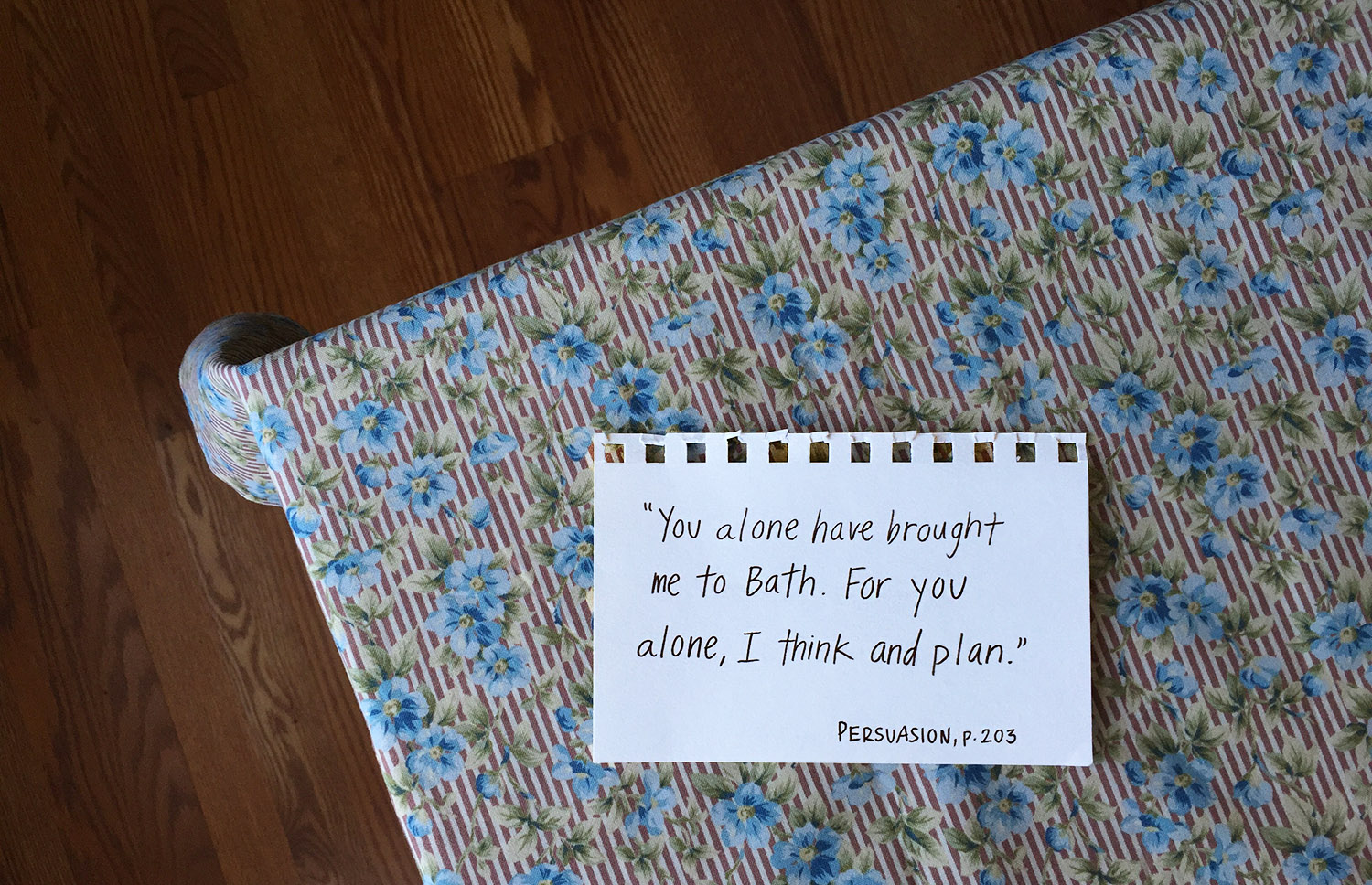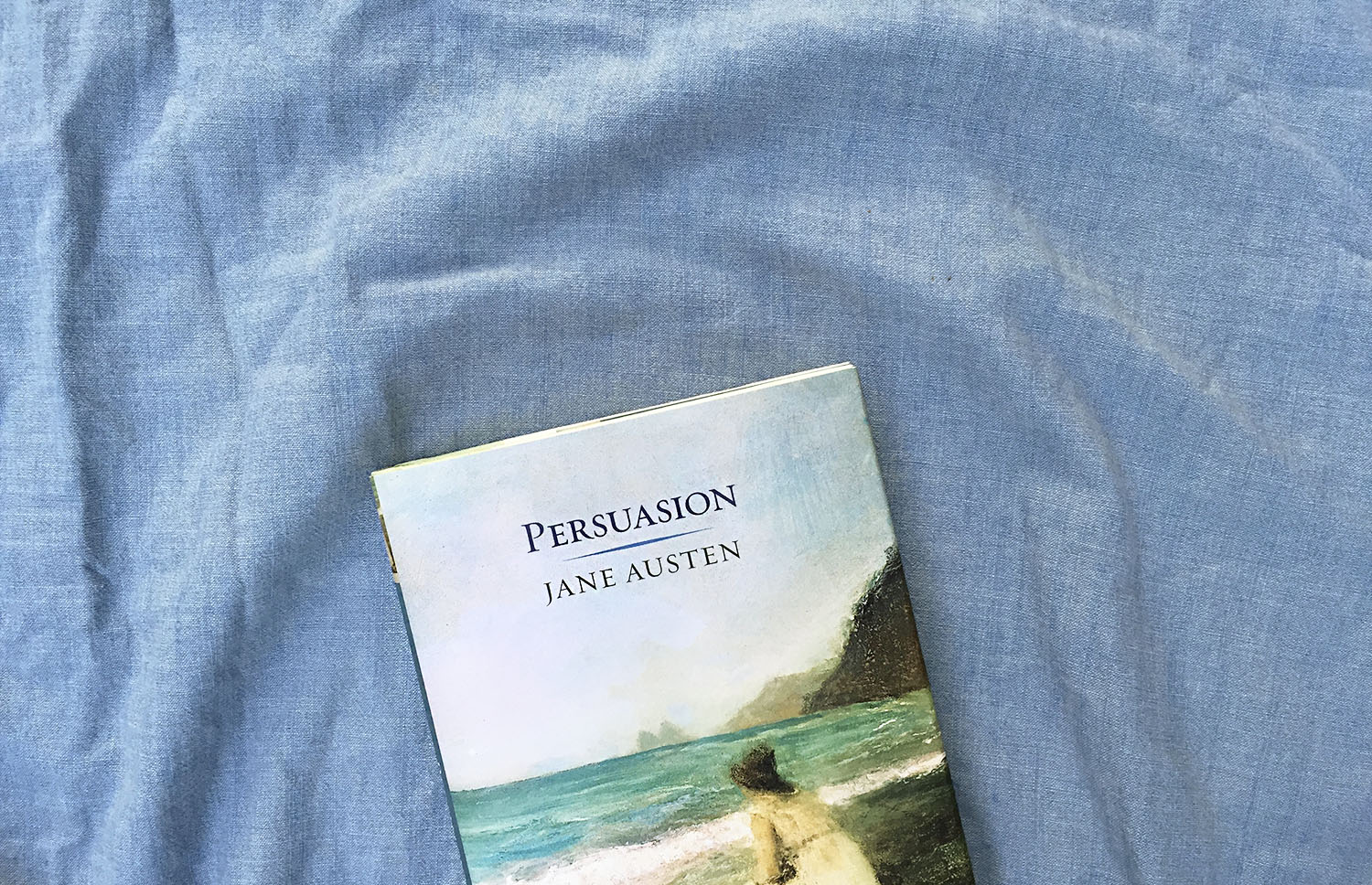“You alone have brought me to Bath. For you alone, I think and plan.”
(A letter from Captain Wentworth to Anne Elliot )
The time between finishing a book and writing about it should be as short as possible, as in I prefer when it happens immediately. My memory is strong and my feelings are fresh, the perfect foundation for reflection. Alas, I let this one linger, so I am afraid that whatever I write will be a dimmed version of my true love and enthusiasm for the book.
Persuasion is thus far and by far my favorite of Jane Austen. It is a love story not of excessive romance, but of two people growing older, wiser, and finding their way back together. The pages overflow with characters, but unlike
Sense and Sensibility, which required scribbling family trees in the margins, I found it easy to keep track of
Persuasion’s names and relations. Every character is unique and well-developed, even the minor ones are memorable, and almost every one of them has some kind of influence on the relationship between Anne Elliot and Captain Wentworth.
During a group outing in which the friends disperse among various activities, Anne becomes flustered by a conversation she overhears between Wentworth and Henrietta. Anne is relieved when everyone in the party gathers back together, as she is able to collect herself amidst the noise of the crowd:
“Her spirits wanted the solitude and silence which only numbers could give.” I immediately thought of the same idea famously expressed in
The Great Gatsby:
“I like large parties. They’re so intimate. At small parties there isn’t any privacy.”
My only wish is that I could have been privy to the details of Anne and Wentworth’s relationship. We are to assume that they are soul mates, that this is a meeting of the minds, yet because they are estranged for most of the story, we do not get to witness the connection ourselves. I suppose this is only a credit to Austen’s talent of creating characters whom we would love to observe, or to overhear in long conversation. I’m bound to come back to Austen, and the call will surely be
Emma, but for now I leave her, and I think I miss her already.


 Persuasion
Persuasion


